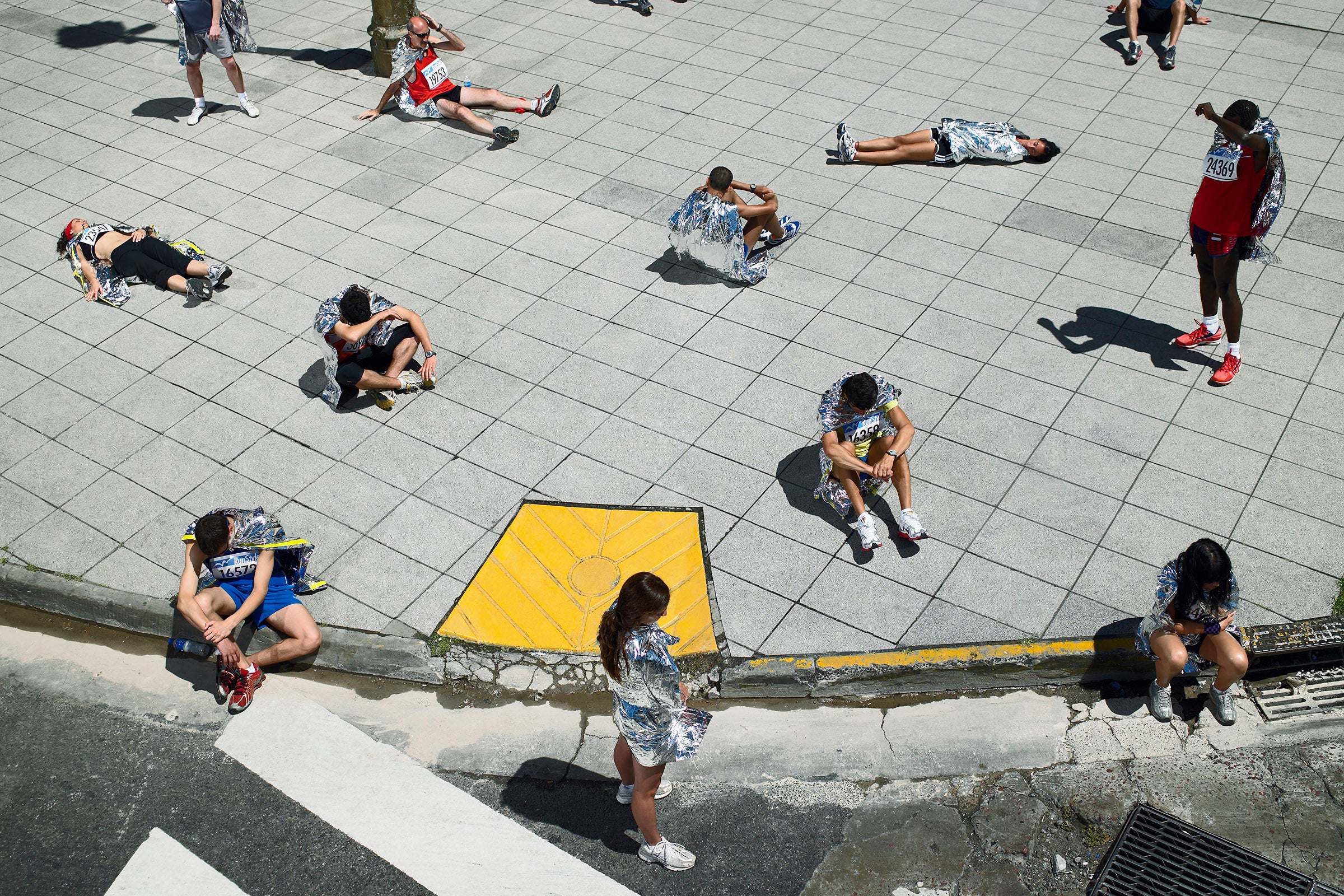How to Properly Recover After Running a Marathon

(Photo: Getty Images)
The amount of time, energy, grit, and guts that go into training for and running a marathon is huge. We set our sights on the big day and spend months carefully planning training, but often we don’t think too much beyond that to the marathon recovery. After putting in all the work to get in marathon shape, it’s inadvisable to take too much time away from running. The key is to find the balance between recovery and regression.
What we do the day after or two days after is important, but after an intense few months of preparing our bodies to race it is important to let yourself rest. Marathon recovery is as much physical as it is mental.
“You have to consider how much of a toll the marathon took on your body, how your training was leading up to it, and how you were feeling leading up to it and during it,” says Mary Johnson, founder, owner, and a performance coach at Lift.Run.Perform. “Was the time you ended up running where your fitness level is? Or was it slower or faster?”
There’s also the mental aspect of finishing a race. Johnson says her coaches usually consider the mental stamina required for a long, grueling training process. Sometimes, in order to grant yourself a relief from that focus, time off can help rebuild your mental strength.
Post-Marathon Recovery Tips
Here are a few things to do to aid your body’s ability to recover after a marathon and set you up for success for your next one. Johnson advises that every post-race recovery plan should begin with an examination of the runner’s overall performance in the race, bearing in mind that each race performance is different for virtually every body.
Immediately After
- Make refueling and rehydrating a priority. Sometimes, the last thing we want to do after a hard effort is eat or drink, but taking the time refuel and rehydrate post-run is important in providing your body with the building blocks it needs to repair muscle. The ideal time to eat and drink is about 30 to 60 minutes after completing your run or race. Make sure you drink some electrolytes and try to have a slice of whole grain toast with avocado, nut butter, or coconut oil. Follow up this with a hearty meal later on.
- Consider an ice bath. The scientific consensus on ice baths has shifted over the years, but they’re not passé. Particularly if you believe it’s helping, an ice bath is a great way to immediately reduce inflammation and aid in marathon recovery. Throw on a sweatshirt and grab a hot cup of coffee or tea to help make the ice bath more bearable. Soak for 10-15 minutes. If you can’t get in an ice bath, consider using freezable wraps shortly after your race and compression wear to aid recovery.
- Stretch and roll. Shortly after your run or race, take the time to stretch and foam roll muscles, especially ones that have a tendency to be chronically tight (you know, those muscles that ache when you get out of bed first thing in the morning). Breaking up lactic acid and lengthening muscles can help recovery.
RELATED:
The Week After
- Get moving. Some runners swear by shake out runs and others prefer to take multiple days or even a week off after a big marathon effort. It is a good idea to move after a big race as it gets blood moving back into muscles, delivering much-needed nutrients. But doing too much too soon can lead to injury, so keep it easy. As with any point of your training cycle, it’s important to pay attention to the signals your body is sending you. Normal aches and pains after a marathon should subside after about 10 days—anything over that and it’s time to see a doctor, Johnson advises.
- Make a plan for your next race. Putting another race on the schedule will help motivate you to get back into the training routine once you’ve recovered. A half marathon in the winter or early spring can help you keep that endurance base.
- Prioritize sleep. Your body needs sleep to fully heal muscles and help you reset after a seriously hard effort—we secrete growth hormone during sleep, which repairs and builds muscles and helps lower inflammation. Aim for seven to nine hours a night for the most benefit.
RELATED:
- Recovery Runs 101: Everything You Need to Know About Taking it Easy
- Sleep Is an Indispensable Part of Recovery, Especially in Older Athletes
Two Weeks After
- Adjust your training. Resume your normal running schedule but cut your weekly mileage and intensity by about 50 percent. There can be deep fatigue in the muscle especially if you’ve raced hard. While rest, recovery and light workouts may not be something a dedicated runner can handle patiently, the “off” session is vital to ensure a successful future with many more finish lines in the distance.
- Focus on staying healthy. It’s great to harness the excitement of the marathon, but give your body some time to heal. It’s called the off-season for a reason: now is the time to prioritize things like mobility and injury prevention. If you find yourself feeling niggles or having symptoms of overuse, consider scaling back or replacing some run days with cross-training.
- Join a group. Mentally recovering from a race can be just as hard as physical marathon recovery. If you did the first race solo, it can be a nice switch-up to find like-minded runners at a local store or club to help keep you motivated and engaged. This is especially true if your race didn’t go the way you planned—other runners can help get you back on track.
RELATED: